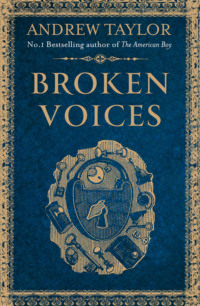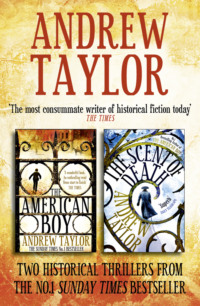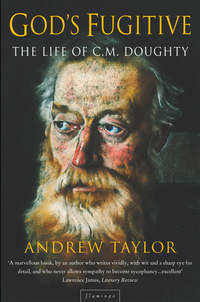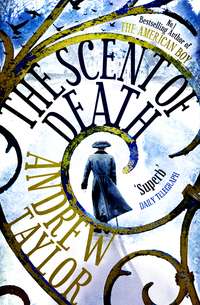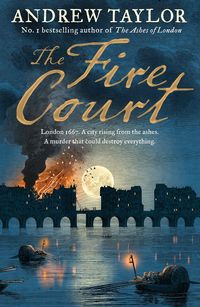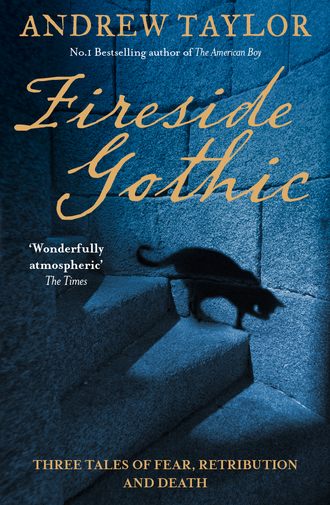
Полная версия
Fireside Gothic
‘Please, sir,’ Faraday said, sounding like a little boy, ‘who is the blue lady?’
‘She is at the Deanery,’ Mr Ratcliffe said. ‘I used to go there a good deal when I was younger.’ He glanced at the piano that dominated the room. ‘Not in this Dean’s time, or even the one before. There was a lady – the Dean’s daughter, as it happens – who played the violin and wanted an accompanist.’
‘Was she the blue lady?’ I asked.
‘She was entirely flesh and blood.’ Mr Ratcliffe gave a cough. He turned away from us and blew his nose. ‘But I often went up to the Deanery drawing room in those days, and I sometimes met the blue lady on the stairs.’
‘How did you know she was a ghost, sir? Could she have been someone staying there?’
‘Oh no. She wore a dress with panniers under the skirt. Eighteenth century, I imagine. Besides, I encountered her on one occasion when I was with Miss … with the Dean’s daughter, and she didn’t see her.’
Faraday leaned forward, his head resting on his hands. ‘What happened, sir? Did she speak? Did you?’
‘No,’ Mr Ratcliffe said. ‘We hadn’t been introduced, you see. So I bowed – and she bobbed a small curtsy. It was always like that – I must have seen her three or four times. The last time I glanced back and she was looking up at me. I thought she might be going to say something. But she didn’t.’
‘Did you ask the Dean about her?’ I said.
Mr Ratcliffe shook his head. ‘It would not have been wise. But I did ask his daughter if the Deanery was said to be haunted, and she said no, but that her mother had been obliged to dismiss a housemaid who was making up silly stories to frighten the other servants. Stories about a lady in an old-fashioned dress.’
Faraday’s mouth had fallen open in amazement. He looked more like a rabbit than ever.
‘It all seems so pointless, sir,’ I said. ‘The cat – the blue lady.’
‘Why does it have to have a point?’ Mr Ratcliffe said. ‘Which is to say, a purpose that we in our present situation are able to understand. It’s true that in some cases one can speculate about that. In other words, there may be a possible factual basis that might underlie a ghostly phenomenon.’
‘He means there is a real story to explain the ghost,’ I told Faraday, as much to display my superior understanding as to enlighten his ignorance.
‘One or two of our own ghosts come into that category. Take Mr Goldsworthy, for example. On the other hand, the real story may not explain the ghost – it may be the other way round: that the ghost is our way of trying to explain something puzzling or disturbing that actually occurred. Something we somehow create ourselves.’
Mr Ratcliffe paused. He peered through his pipe smoke at Faraday and me. He had been a schoolmaster all his life and he knew boys.
‘It is getting late,’ he said. ‘You two should go to bed.’
‘But, sir,’ Faraday said. ‘What about Mr Goldsworthy?’
Mr Ratcliffe smiled at him. ‘I’ll tell you about him tomorrow evening.’
‘Oh, sir.’ Faraday sounded about nine years old. I scowled at him, though I was as keen to hear about Mr Goldsworthy as he was.
We said our good nights. Mr Ratcliffe stayed by the fire, smoking and reading. I went outside to use the lavatory while Faraday carried the cups into the kitchen and stacked them in the sink.
It was colder than ever outside. The air chilled my throat and tingled in my nose. Above the black ridge of the Cathedral was the arch of the sky, where the stars gleamed white and silver and pale blue: they seemed to vibrate with the cold, shivering in heaven.
Afterwards, I went upstairs. Faraday went outside in his turn. By the time he came upstairs, I was already in bed and reading my book, a novel called Beric the Briton by G. A. Henty. I ignored him while he undressed. I heard his bedsprings creak as he climbed into bed and the sharp intake of breath as the cold, slightly damp sheets touched his skin.
‘I say,’ Faraday said. ‘Can I ask you something?’
I lowered the book. ‘What?’
He was lying on his side, curled up with his knees nearly at his chin. All I could see of him was his face. He looked more rabbit-like than ever.
‘Did you hear it outside? The – the singing, or whatever it was?’
‘What are you talking about?’
‘It was when I came out of the bog,’ he said.
‘Perhaps the Rat was having a sing-song,’ I said. ‘He got drunk on the Dean’s wine. It was obvious, the way he was going on this evening.’
‘It wasn’t him, honestly – it came from outside, from over there.’
Faraday’s hand emerged from under the covers and pointed to the right of our beds: towards the College, towards the Cathedral.
‘Someone coming home from a party,’ I said.
‘It wasn’t like that.’ He was frowning. ‘It was just four notes, very high-pitched and far away.’
Very quietly, Faraday sang them to me: La-la-la-la. The third la was longer than the others. His voice behaved itself for once, and the notes sounded pure and true. As far as I could tell.
‘You sure you didn’t hear it?’
‘Of course I’m sure. Go to sleep.’
He sang the notes again, even more quietly. ‘It’s in a major key, I think. Starts on an F sharp, perhaps?’
‘Shut up, will you?’
I reached up and turned off the gas at the bracket on the wall.
‘Whatever it is,’ he said to the darkness, ‘it’s meant to be happy but it’s going to be a sad tune.’
I lay awake listening to the sounds of the night, wondering whether Faraday would start crying again. He hadn’t mentioned the business with the postal order during the day but it must always have been there, squatting in the forefront of his mind like a toad and waiting for its moment to spring. His plight made mine seem trivial by comparison, which I suppose was another reason I didn’t like him very much.
Faraday’s breathing slowed and fell into a regular rhythm. I heard Mr Ratcliffe locking up and coming up the stairs. The Cathedral clock tolled the hours and the quarters. The clock was in the west tower, not the shorter central tower. It had a modest chime for such a large church, like a big man with a small, high voice. We boys called it ‘Little Willy’.
The silence deepened. Once, as I was dropping off to sleep, I thought I heard again, at the very edge of my range of hearing, the four high notes that Faraday had sung to me. La-la-la-la.
6
For most of Boxing Day, we were left to our own devices. Mr Ratcliffe went out after breakfast to call on a former servant at the King’s School who now lived in one of the almshouses attached to the parish church. He would go directly on from there to have lunch with an old friend in a village a mile away from the town. He did not expect to be back until evening.
Time passed slowly for us. We were in a sort of limbo, neither at home nor at school. Faraday and I kept together because we had no one else to be with and nothing else to do.
In the morning we stayed at the Sacrist’s Lodging, reading under the disdainful gaze of Mordred. I finished Beric the Briton and looked along Mr Ratcliffe’s shelves for something else to read. Most of his books were about boring things like music or architecture. There was some poetry, equally boring, and the sort of books we had at school, like Shakespeare. In the end I had to settle for Oliver Twist.
Faraday irritated me more than usual. He couldn’t stay still for a moment. He moved around the room, fiddling with the ornaments and looking at the pictures, most of which were engravings of old buildings.
He sat down on the stool and raised the lid of the grand piano.
‘Do you play?’ I said.
‘Yes.’ He pulled back his cuffs and spread his fingers over the keyboard. A ripple of notes burst into the room.
Naturally he played the piano, I thought: bloody Faraday could do everything and do it well.
‘God!’ he said in quite a different voice. ‘It’s awful.’
‘What is?’
‘The piano. Can’t you hear? It’s awfully out of tune. I bet it’s warped.’
‘Good,’ I said, returning to page two of Oliver Twist. ‘At least that’ll stop you playing it.’
Whether the piano was in tune or not was all the same to me. I have never understood music and its power to affect some people so profoundly.
He closed the lid with a bang.
Faraday and I couldn’t afford to quarrel, or not for long. We needed each other too much. We went into the town, though the shops were closed, and walked the long way round to the Veals’ house beside the Porta.
Mrs Veal welcomed us like a pair of prodigal sons – she had grown used to us now, I suppose, and saw us for what we were: a pair of lost children who needed feeding up. She gave us cold beef and cold ham, and as much mashed potato as we could cram into ourselves. Then came apple pie, followed by cups of tea so densely packed with sugar and cream you could almost stand your spoon up in it.
For the first time we saw Mr Veal in his shirtsleeves. He was in a jovial mood, with a glass or two of beer beside him. This time was a sort of holiday to him, he explained. For the Cathedral’s rhythms built up to the great feasts of the church, like Christmas; but after these climaxes there came lulls. The daily round of services continued, but on a reduced basis. The choir was on holiday so the Cathedral was mute. Dr Atkinson had gone away, leaving what little had to be done in the hands of the deputy organist. Many of the canons had gone out of residence and even the Dean was visiting his son in London.
Mr Veal had his own deputies, and he allowed these assistant vergers more responsibility at these times, and himself more leisure.
‘Mind you,’ he said, leaning forward and tapping the table for emphasis, ‘you can’t give them too much responsibility. They’re not ready for it. So I do my rounds, like always. I keep the keys.’
He nodded towards the table at the window. There was a big tray on it, and Mr Veal had laid out on it the keys that usually hung on the back of the cupboard door, together with a black notebook.
‘Funny how keys wander,’ he said. ‘I make sure none of them have strayed. Redo the labels and check them off in my book. You can’t afford to sleep on this job. There’s a lot goes on here that most folk never realize.’
Neither of us said anything. It wasn’t just the heaviness of the meal that kept us silent. In my case, at least, it was also the sense that I had no idea what I was going to do with the rest of the day. Food was, as always in my schooldays, a temporary distraction.
Perhaps Mr Veal sensed something of this. ‘There’s ratting up at Mr Witney’s.’
I looked up. ‘In his big barn?’
‘Yes – all afternoon till the light goes.’
‘We could go,’ I said. ‘He wouldn’t mind, would he?’
‘More the merrier. More than enough rats to go round.’
‘Ratting?’ Faraday said. ‘I’ve never done that.’
‘It’s ripping fun,’ I said.
‘There are some sticks in my shed if you want them,’ Mr Veal said. ‘Always best to take your own. You want one the right weight, don’t you?’
Faraday was reluctant but he wasn’t proof against my enthusiasm and Mr Veal’s gentle encouragement. We found a couple of sticks and walked through the Porta. Angel Farm was across the green, beyond the theological college.
‘Do we – do we actually hit them? The rats, I mean?’
‘Of course we do.’ I whacked the grass with my stick. ‘But you have to be quick. Or the dogs get them first.’
‘You’ve been ratting before?’
‘Loads of times.’ I had been ratting only once, in fact, with the vicar’s son at home. ‘It’s awfully good sport – you’ll see.’
We turned into the muddy drove to the farm. They had already started – I could hear the shouting and the excited barking. To tell the truth, I was a little nervous.
‘Better put your cap in your pocket,’ I said, taking mine off. ‘You might lose it otherwise.’
My real reason was that our caps advertised the fact that we were King’s School boys. The school was not universally popular in the town, and there was no point in courting trouble. Not that I was seriously worried. Mr Witney was a tenant of the Dean and Chapter, and the school subleased their playing field from him; he would keep an eye out for us.
Men and boys were milling around the yard. The barn doors were open, revealing a space large enough to take a laden wagon. Dogs were everywhere, small ones mainly, terriers and the like.
‘That’s like mine at home,’ I said, pointing at a mongrel with a lot of spaniel in him. ‘He’s awfully bright – understands almost everything I say.’
This was a lie, as I did not have a dog. But I had pretended I had one for years. My aunt wouldn’t let me have a real dog. It would bring mud into the house and, besides, who would look after it in term time? So I had a dog in my mind instead. The precise breed varied (he was often a mongrel) but his name was always Stanley, after a dog my father had owned when he was a boy. The dog’s other permanent attributes included his almost human intelligence and his unswerving loyalty to me.
Mr Witney was concentrating his operations both inside and outside the barn. The building was very old, perhaps mediaeval in origin, and constructed of soft, crumbling sandstone. The target areas lay along the base of one of the immensely thick gable walls, both inside and out. Two or three men on each side were attacking the ground with spades, iron rods and pickaxes, breaking up the compacted earth. A score or so of men and boys gathered around the diggers, all of them armed with sticks. Dogs of all shapes and sizes scurried about everyone’s legs, tails high in excitement.
Faraday and I sidled into the outskirts of the larger crowd, the one outside the barn. Nobody seemed to notice us. They were all staring at the diggers. Some of the dogs, careless of danger, were diving into the loosened soil and burrowing like maniacs with their front paws.
One of the dogs was already so far into the ground that only his hind legs and tail were visible. Suddenly he pulled himself out of the hole with a wriggling rat clamped between his jaws. He shook his prey in the air, and two other dogs instantly converged on him. One of them leapt up and grabbed the rat by its head. A tug of war ensued, each animal trying to wrest the rat from the other until the rat resolved the matter by dividing itself into two unequal parts.
I heard a sound beside me and glanced at Faraday. His face had gone white, the fleeing blood leaving a cluster of freckles scattered across the bridge of his nose and his cheeks.
‘Come on,’ I cried. ‘It’s—’
Another rat broke cover and darted to and fro among the sticks and stamping feet and snarling dogs. It saw an opening and shot towards the open field beyond. It was making for the gap between Faraday and me. People were shouting. I swung the stick down and felt the jar as it hit the ground, the impact running up my hands and arms.
‘Well hit, young ’un!’ shouted Mr Witney. ‘That’s the way.’
I looked down and saw to my surprise a little mass of bloodied fur, still squirming feebly.
‘Oh God,’ Faraday said.
A sort of frenzy seized me, a bloodlust. I ran berserk among the men and boys and the dogs and the rats. I held my stick in both hands and pounded it down, again and again. One of the dogs attached itself to me. How many rats did I kill or help to kill that day? Half a dozen, perhaps more?
Mr Witney put a stop to the ratting only when the light was beginning to fade.
It felt as if we had only been at the farm for five minutes but it must have been at least an hour and a half. The dog rubbed itself against my leg. It was a mangy little animal, a mongrel, with a piece of rope for a collar and a half-healed wound on its side.
‘Well done, boy,’ Mr Witney said. ‘So you learn more than Latin and Greek at that school of yours.’
I bent down and scratched the dog between his ears. ‘Good boy, Stanley,’ I murmured. ‘Good boy.’ Just for a moment I was blindingly happy, dizzy with joy.
Faraday nudged my arm. ‘Can we go back now? Please?’
I looked at his pale face and his big teeth, ghostly in the fading light, and all at once the joy evaporated.
‘There’s blood on you,’ he said. ‘There’s blood everywhere.’
He was right. My hands were streaked with blood from the dog’s muzzle and the handle of my stick. The corpses of rats lay everywhere, some complete, others in fragments. The dogs’ interest in them diminished sharply once they stopped moving.
‘Come on,’ he said. ‘Please.’
I glanced over my shoulder, hoping for a wave from Mr Witney or a nod of farewell from one of my comrades in the battle. But no one was looking at me. No one paid any attention when we left the yard and walked down the muddy lane towards the green.
For a few moments, for an hour even, I had been part of a group; I had played a useful part; I had been, in some small way, valued for what I did. That was all gone. Now I came to my senses and discovered that part of my collar had come adrift from my shirt and the tip of it was nudging my left ear. My overcoat was splashed with mud and cowpats, as well as blood. I had lost my cap. And I was alone once more with Faraday.
‘They were talking about me,’ he said in a voice that wobbled. ‘Mr Nicholls was there. He knows.’
‘Who’s Nicholls?’
‘He is a lay clerk. A tenor.’ For a moment there was a hint of superiority in Faraday’s voice. ‘Not very good, though he thinks he is.’
The lay clerks were the basses and the tenors of the Cathedral choir. They were grown-ups. Many of them had been at the Choir School when they were young, and they still lived in the town.
‘What does it matter if he recognized you?’
‘You don’t understand.’ Faraday was always accusing me of that, and quite rightly. ‘Mr Nicholls was pointing me out and whispering about me. They know.’
‘I expect it was about your voice breaking and not being in the choir any more.’
‘No. You should have seen their faces. They’d heard about … about the other thing.’
He meant the postal order. If Mr Nicholls knew about it, the story could no longer be confined to the Choir School and a handful of trusted outsiders like Mr Ratcliffe. It would be all over the place in a day or two, in the College and in the town.
‘I can’t bear it,’ Faraday said.
I glanced at him and saw a tear rolling down his cheek.
‘We’ll go back to the Rat’s now,’ I said. ‘We can make tea. If there’s bread, perhaps we can have toast. He’s got a toasting fork in the fireplace.’
‘Thank you,’ he said, blowing his nose. ‘Thank you.’
7
Poor little devil. I was sorry for Rabbit. I wanted to help, as long as doing so wouldn’t inconvenience me too much. The question is: did trying to help make matters worse?
It was starting to rain. In order to get back to the Sacrist’s Lodging as swiftly as possible, I took us back through the Cathedral, which was not only shorter than going through the College or through the town but also, at that time of day, lessened the chance that we should meet anyone who knew either of us.
My suggestion wasn’t entirely altruistic: if a boy from King’s was found outside the College without his cap, it automatically earned him a beating. It was possible that the rule did not apply in the holidays, but I didn’t want to put it to the test. Besides, I was starving, Mrs Veal’s lunch a distant memory, and the idea of food was powerfully attractive.
Most people in the College used the Cathedral for shortcuts, and so did many townspeople. There were three doors open to the public – the west door under the great tower, the south door, which led through the ruins of the cloisters to the College, and the north door, from which a path led both to the High Street and to the Sacrist’s Lodging. Using the Cathedral also meant you kept dry. It was considered bad form to hurry, however.
We walked through the porch and pushed open the wicket in the west doors. It was dark, much darker, inside the Cathedral than it was outside. The lamps had not yet been lit, apart from one or two at the east end, beyond the choir screen.
The emptiness of the place enfolded us like a shroud. The air was cold and smelled faintly of earth, incense and candles.
Ahead and to the left, in the north aisle, was one of the great stoves, each surmounted by a black crown, that were supposed to keep the building warm. There was a faint but clearly audible chink as the coke shifted in its iron belly.
‘I’m freezing,’ Faraday said.
He walked over to the stove and held his hands to it.
‘Hurry up,’ I said. ‘I’m starving.’
‘Just a minute. I’m so cold.’
I joined him by the stove. If you stood about three inches away from it, you could actually feel the warmth of it on your skin. It wasn’t so much that the stoves weren’t occasionally hot: it was more that the Cathedral was eternally cold.
Faraday glanced at me. ‘There’s blood on your hands,’ he said. ‘And on your sleeve.’ His voice lurched into a croak. ‘It’s everywhere.’
‘Shut up,’ I said. ‘It doesn’t matter. I can wash it off. What’s water for?’
I turned my head to avoid seeing his white face and rabbit teeth. My eyes drifted away. It’s a funny thing about buildings, how they take control of you and guide your eyes along their own lines, towards their own ends. In the Cathedral, the rhythm of columns and arches, diminishing in height as the layers climbed to the roof, made you look upwards and upwards. Towards heaven, the school chaplain once told us in a sermon. Or to the roof. Not that it matters in this case: the point is I looked up into the west tower.
Its west wall rises sheer, a cliff of stone pierced with openings: first the doors, then a great window which doesn’t let in much light because of the stained glass. Then, higher still, bands of Norman arcading line the inside of the tower. The first set has a walkway that runs behind it. The next one, further up, is blind, its arches and pillars flattened against the tower wall behind. Above that still, 120 feet above the ground, is the painted tower ceiling, above which the tower rises, higher and higher, stage by stage, to the lantern that perches on top.
Sometimes one of the younger masters would take a party of boys up to the top as a treat. You went up a spiral staircase in the south-west corner, crossed the width of the tower by the walkway behind the lower arcade, climbed another set of stairs, and then another, until your legs felt twice as heavy as usual. Finally, you came to a wooden door that led on to the leads, more than two hundred feet from the ground.
Up there was another world, full of light, where a wind was always blowing. You felt weightless, as if floating in a balloon. Far below were the streets of the town and tiny, foreshortened people scurrying through the maze of their lives, oblivious of the watchers above. Beyond the town stretched the Fens as far as the eye could see, their flatness dotted with the occasional church tower or tree or house, which served to emphasize the monotony rather than relieve it; and at the circular horizon, the sky and the earth became one in a blue haze; and it no longer mattered which was which.
I had been up to the top of the west tower only once, about six months earlier before the end of the summer term. It had been a bright, clear day. There was a story, the master said, that a day like this you could see almost every church in the diocese from here. I tried to count the churches I could see. But I soon gave up and thought instead about Jesus in the wilderness, and how the devil took him up to a high place and tempted him.
If I had been Jesus, I would have struck a deal with the devil. In return for my soul, I wanted not to be at school; I wanted to live at home with my parents; and I wanted to have a dog called Stanley.
I remembered all that as I stood by the stove with my bloody hands. I was still thinking about it when I saw the man. He was walking from left to right, quite slowly, along the walkway behind the lower arcade, perhaps ninety feet above our heads. The light was so poor I couldn’t see him clearly. When he passed behind one of the pillars he seemed to dissolve and then reconstitute himself on the other side.


